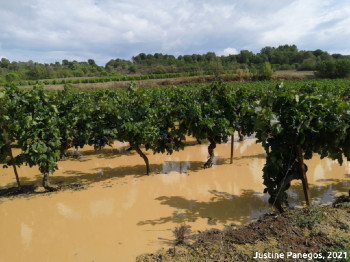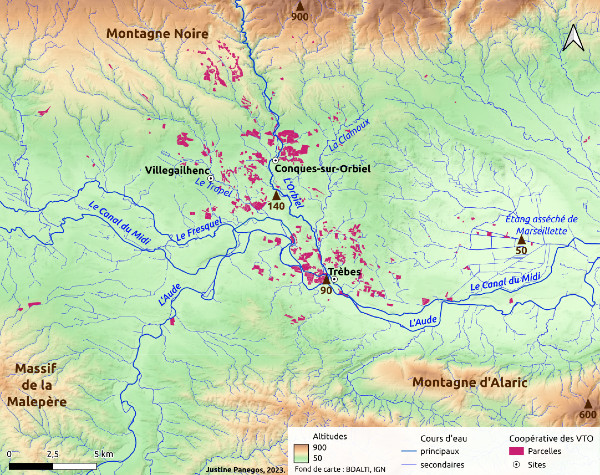 © Justine Panegos, INRAE
© Justine Panegos, INRAE
The expected changes in the frequency, intensity and even seasonality of hydro-climatic hazards pose a short-term threat to the economic viability of farms, which are already weakened by long-term constraints, whether or not linked to climate change, and which are prompting them to make a "transitional" change.
Winegrowing cooperatives were set up to pool individual resources in order to implement a qualitative transition and deal with market failures. What role can they play in enabling winegrowers to cope with short-term climate change and adapt over the long term, while making economic and environmental changes?
To date, the interactions between hydro-climatic risks and the implications of transitional developments for the adaptation of cooperative systems to climate change have not been addressed.
The thesis proposes to address three objectives relating to wine cooperative systems in a context of multiple climate risks and transitions:
- characterizing their exposure,
- assessing their vulnerability
- and translating vulnerability trajectories into adaptation trajectories.
 © BDALTI, IGN
© BDALTI, IGN
The thesis is based in geography and draws on the tools of this discipline: conceptual framing based on literature analysis, spatial and cartographic analyses, semi-directive and closed surveys of stakeholders in the sector. It will also use process modeling approaches to assess vulnerability. Strong interaction with local partners (via participatory workshops) is envisaged in order to consolidate the relevance of the models and develop adaptation trajectories adapted to their situation.
Key words: Adaptation - hydro-climatic hazards - multiscalar analysis - systemic approach - cooperatives - damage assessment - multi-risk modelling – vulnerability - multirisk - vulnerability - transition






